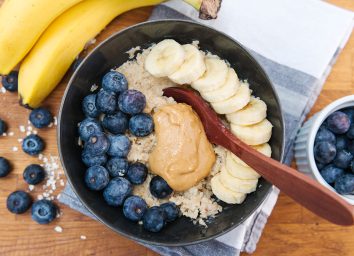12 Worst Weekend Habits for Your Waistline
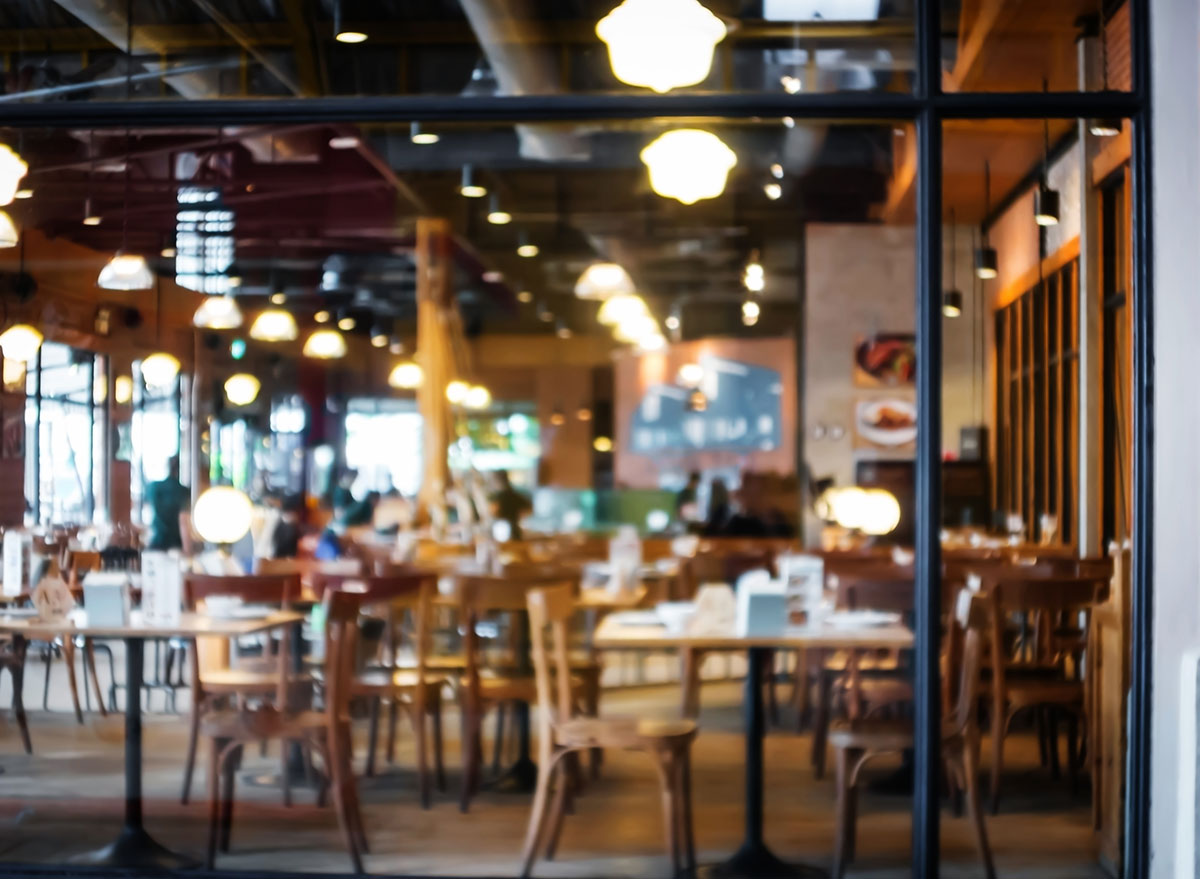
PSA: If you've let loose over the weekend and are ready to hop back on the diet bandwagon on Monday morning, it might be wise to step away from the scale. A 2014 study in the journal Obesity Facts found that we tend to weigh the least on Friday mornings and the most on Sundays and Mondays.
So, let's debrief. What exactly happens over the weekend that causes the Monday morning weight gain and makes our work clothes fit a little tighter? We asked the experts about the bad weekend habits that are translating to a heavier start to your week. See how many you're accidentally doing, and for more on how to eat healthy, you won't want to miss these 21 Best Healthy Cooking Hacks of All Time.
You order too much takeout
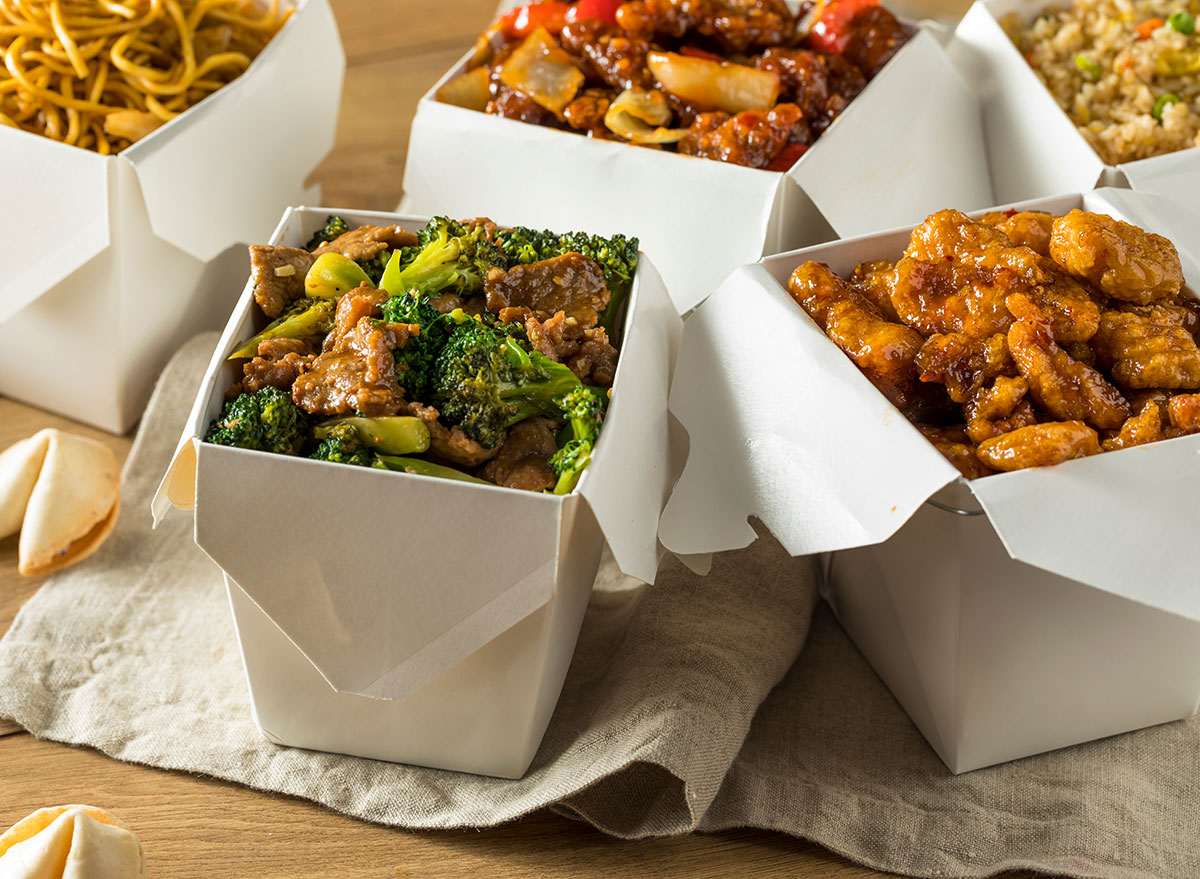
Didn't heed our advice and hopped on the scale anyway? Deep breath while we do a little math. It takes 3,500 calories to make up a pound of fat. If you're noticing an uptick on the scale, there's a good chance it's all that sodium you ate over the weekend. (We're pointing at you, tortilla chips!) "Restaurant food tends to be drenched in salt and oil," says Amanda Dale, an ACE-certified personal trainer who maintains ThisFitBlonde, a health and wellness blog. Another salt bomb? The takeout you ordered while binge-watching an entire season of your favorite show on Netflix. Registered dietitian nutritionist Gisela Bouvier, RDN and owner of B Nutrition and Wellness, LLC, explains that when we eat too much sodium, our bodies retain fluid—which tips the scale. Speaking of takeout, find out the 23 Foods You Should Never Order for Delivery or Takeout!
You eat too many carbs

If your weekend is kicking off with a bread basket at dinner on Friday night and ending with syrup-drenched pancakes on Sunday morning, it could be that carbs are the culprit of your tighter pants. "When we consume carbohydrates, glucose is being pulled into the muscles for reserved fuel known as glycogen," Bouvier says. "However, when glucose is pulled in, so is water. An increased intake of carbohydrates during the weekend can be more weight on the scale Monday morning, thanks to some added water weight." It'll be even worse for you long-term if you commonly indulge in these The 21 Unhealthiest Carbs on the Planet.
You take the entire weekend off

Even if you are a devout gym-goer during the week, if your rest day (or days) fall on the weekend, you could be making some gains—and not the good kind you post on social media about. "Not breaking a sweat could mean extra weight come Monday morning," Bouvier says. "A weekend sweat session helps to decrease excess water weight, while at the same time also helps to make better food choices," she says. "Studies show that when we exercise, we tend to make better, healthier food choices as well."
You're sleeping too much—or too little

By now, you know that quality ZZZ's translate to fewer LBs. But if you're staying up late on the weekends and missing out on sleep, your lack of sleep could be to blame for the extra weight. A study from the journal Psychoneuroendocrinology revealed that too little sleep makes you more likely to choose bigger portion sizes. On the other side of the pillow, studies have shown that sleeping too much (defined as more than 10 hours a day), is correlated with decreased cognitive function and increased risk of obesity, depression, diabetes, and chronic inflammation. The message here? Clock in for a good seven to eight hours of sleep. Be mindful of these 40 Best and Worst Foods for Sleep to make it easier on yourself.
You sleep through breakfast
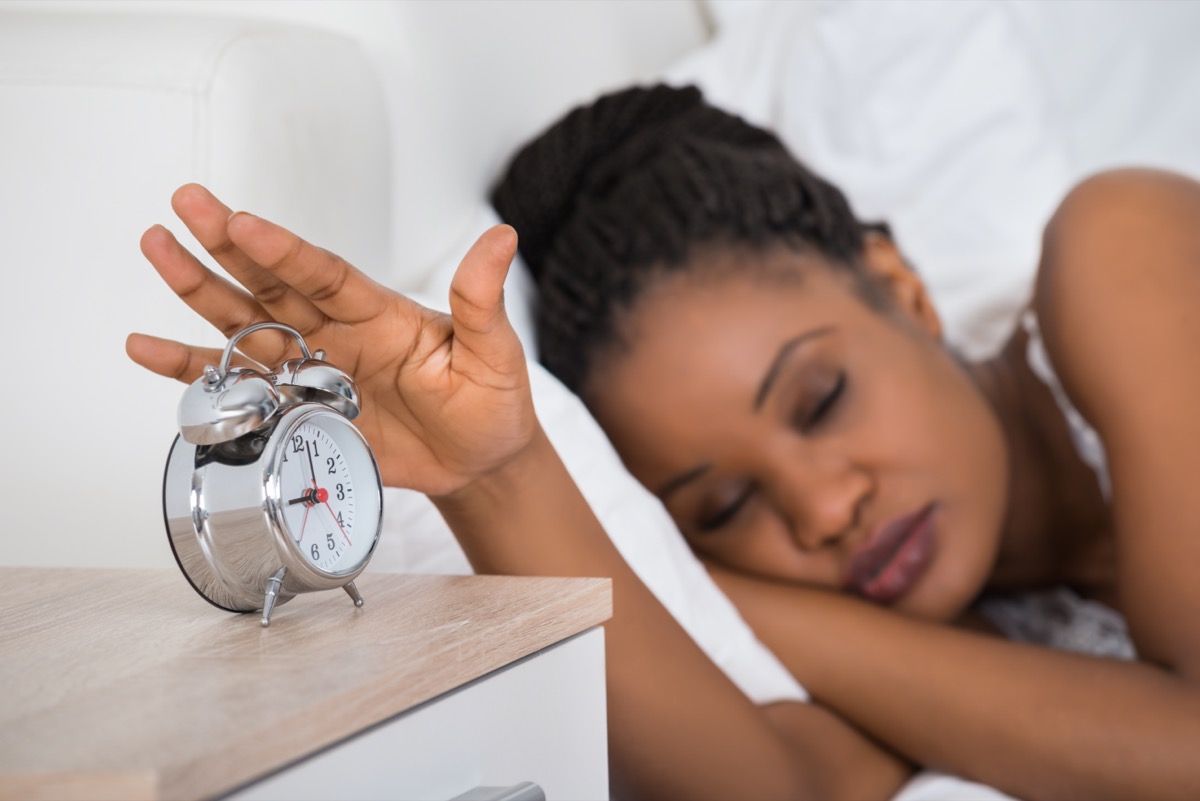
If you abandon the alarm on the weekends and let yourself snooze until it's almost lunchtime, you wake up like a bear coming out of hibernation. "This leads to a huge appetite and overeating during the first meal of the day," says registered dietitian Rebecca Lewis, RD. "When you skip breakfast, you're not fueling yourself for the day and you end up feeling drained." The consequence? Intense hunger cravings that which lead you to reach for foods that are high in fat, sugars, and sodium. Eating a breakfast rich in protein and fiber helps keep those cravings in check.
You eat out a lot

So, you pack your lunch and cook dinner throughout the week. Go, you! But when the weekend rolls around, you've got brunch plans with your besties and dinner dates lined up. You gotta enjoy your life, but you also must know that these excursions need to be managed. "Statistically, restaurant foods are high in fat, sugar, and sodium, the very things we are so careful to watch out for during the week," Lewis says. Stay away from dishes that are described with adjectives like battered, breaded, crispy, smothered, loaded, and bottomless and instead opt for items that are baked, broiled, grilled, marinated, poached, or steamed. "Always ask for sauces, vinaigrettes, and dressings on the side so you can choose how much you actually want to eat," Lewis says. Scope out these 35 Tips for Being Healthy While Dining Out for even more smart and subtle moves that you'll be happy you made.
You drink more than usual

"It's so easy to add on extra calories from alcohol, especially when the average person consumes more than a recommended portion size," Lewis says. For example, that pint of beer is actually four more ounces than the 12-ounce recommendation. Plus, when we imbibe, we're more uninhibited—and that's how 2 a.m. pizza orders and late-night Taco Bell runs happen. Related: What Happens to Your Body When You Drink Beer Every Night.
You don't snack
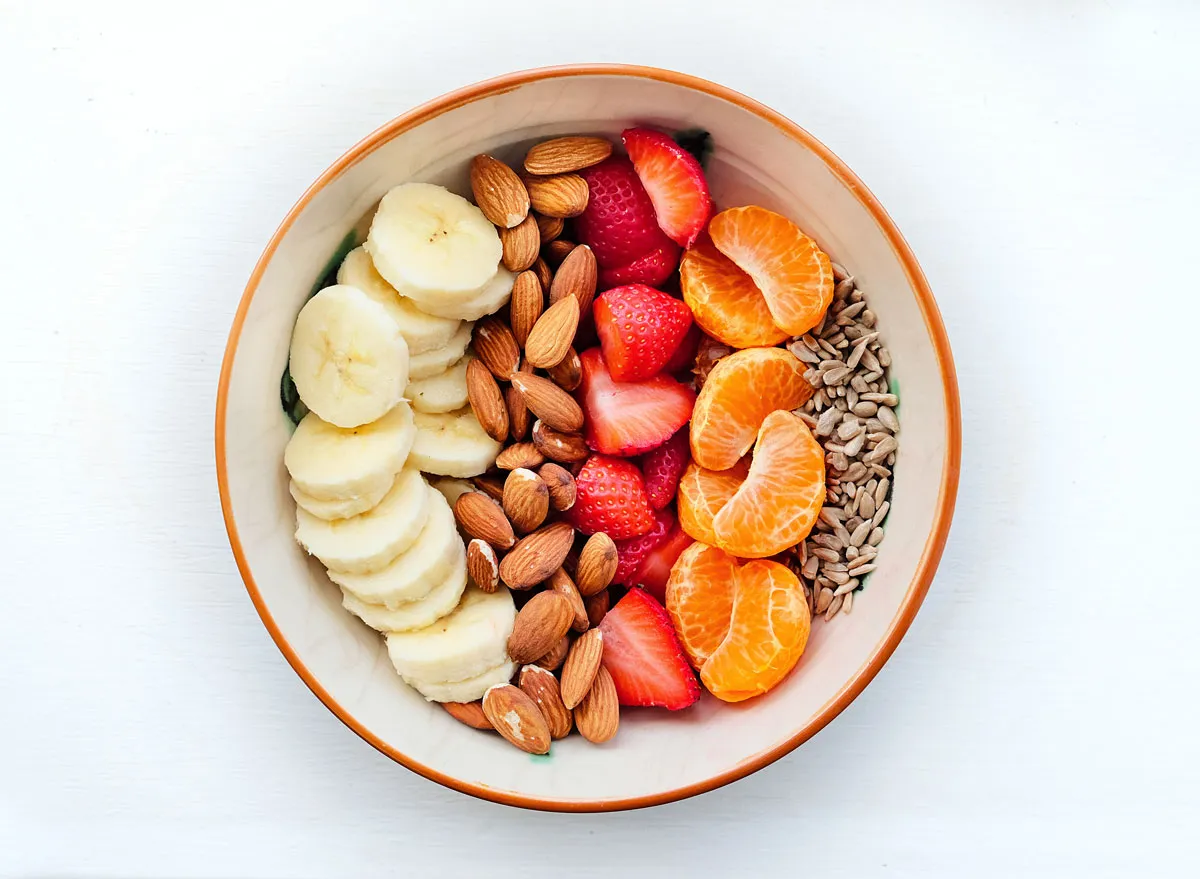
During the week, a lunch break is a perfect reason to get away from your desk for a bit. But if you've packed your weekend schedule and are skipping meals and forgoing healthy snacks, your metabolism is going to take note. "Skipping meals can definitely lead to blood sugar dropping and energy dropping," says Eliza Savage, MS, RD an NYC-based registered dietitian. "Your metabolism will drop as well because it doesn't know when the next meal is coming. Eating small meals or snacks every few hours will help fuel the fire that is your metabolism and keep your energy up." Don't miss these other 31 Ways You're Messing Up Your Metabolism Today.
You "save" calories for a big dinner
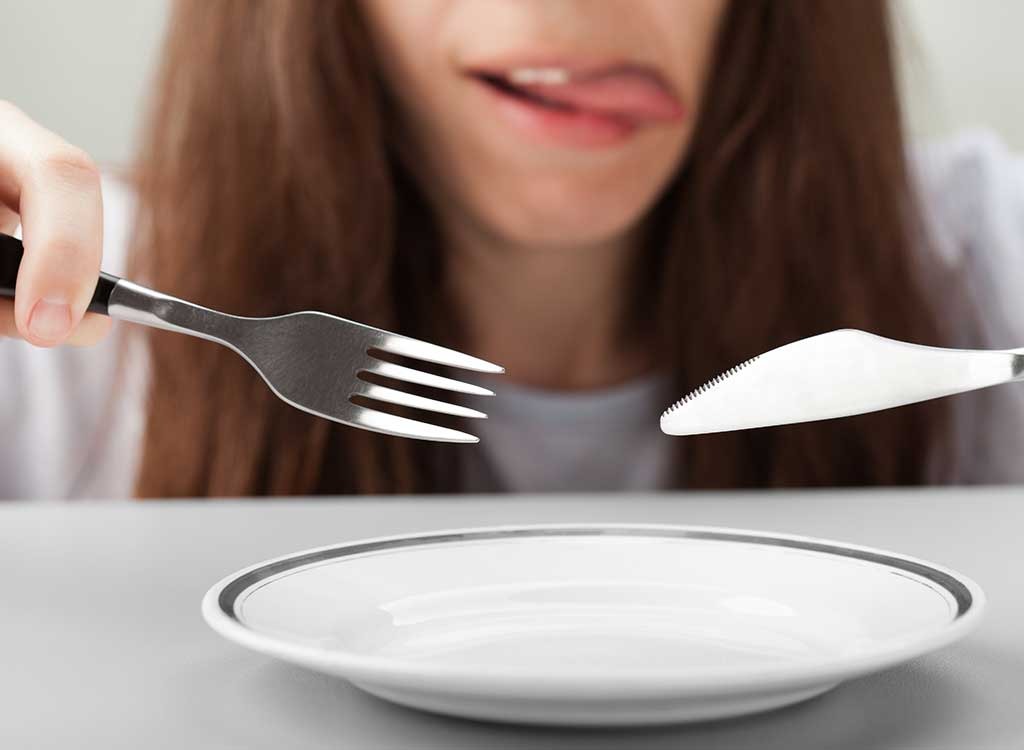
If you skip lunch on Saturday or Sunday because you're going out to an all-you-can-eat sushi spot for dinner, you're breaking a weight loss golden rule. "When people skip meals, they tend to 'reward' themselves later in the day to make up for the calories forgone," Savage says. "This may lead to overeating and indulgences that pack on the pounds over time." Being more consistent with meal times on the weekend can help you maintain a good metabolic rate, she says.
You over-reward yourself
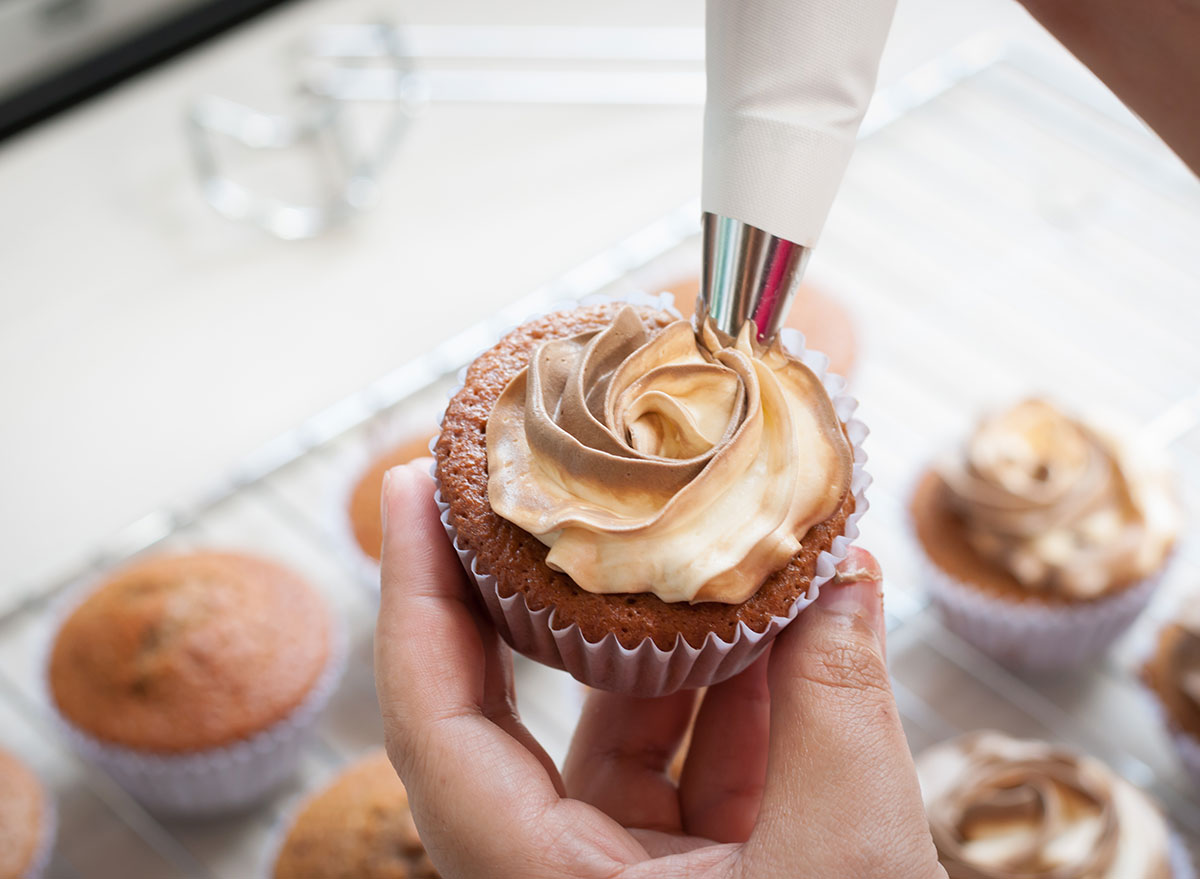
Live by the motto "Treat yo' self!" on the weekend? You might be overdoing it with too many indulgent, calorie-rich foods, says Ashlea Braun, RD, registered dietitian at The Ohio State University Wexner Medical Center. "Although you should relax and 'reward' yourself, consider doing so with non-food items, like buying a new book or new clothes or catching up with friends and visiting a park."
You eat larger portions
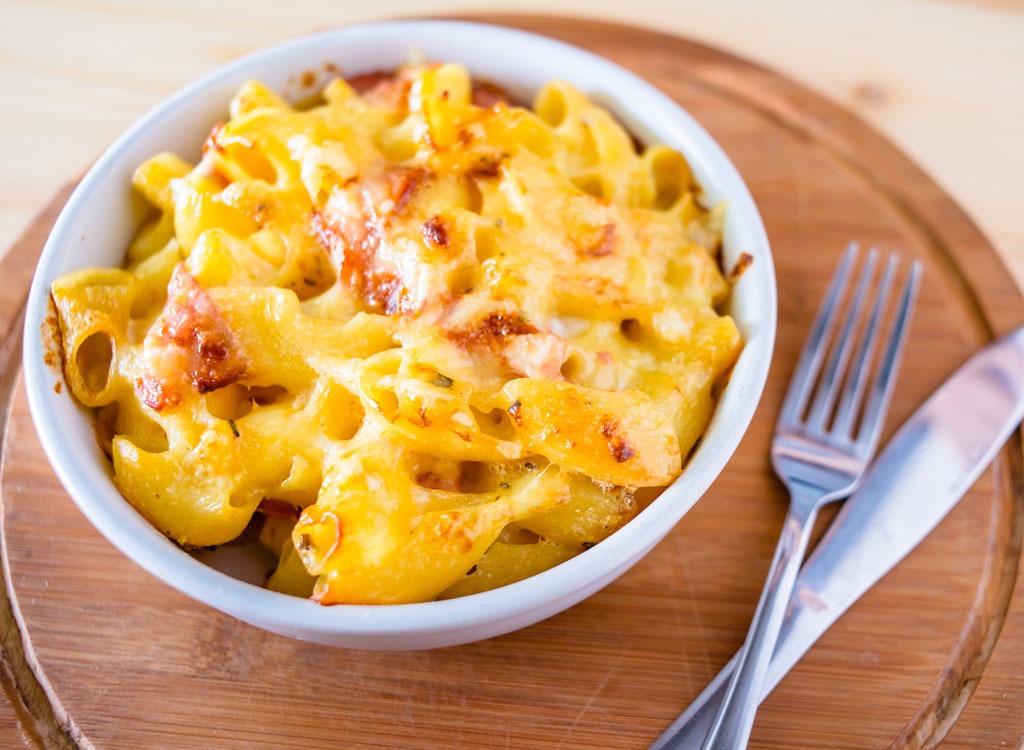
During the week, you might eat a quick bowl of oatmeal or fruit for breakfast, Braun says. Come the weekend, though, you've got more time to make a bigger breakfast, complete with bacon, hash browns, and more. "Not only is this a greater volume of food, but the choices we're making are higher in calories, which can contribute to weight gain," she says. If you choose more indulgent foods, stick with smaller portions, and balance out meals with lower-calorie items, like veggies.
You don't stay hydrated

If you're the type to have a water bottle at your desk—and you should be!—then your regular water consumption may drop off on the weekends when you aren't in the same spot all day with that water one foot away from you. And when you're dehydrated, your body actually retains water—making you puff up, too. To keep your good water habits going even on the weekends, make an effort to Make Sure You're Drinking Enough Water.

